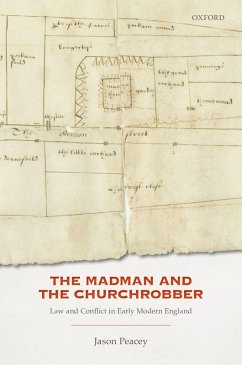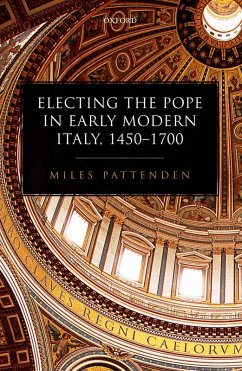
Custom, Law, and Monarchy (eBook, PDF)
A Legal History of Early Modern France
Versandkostenfrei!
Sofort per Download lieferbar
43,95 €
inkl. MwSt.
Weitere Ausgaben:

PAYBACK Punkte
22 °P sammeln!
Ancien régime France did not have a unified law. Legal relations of the people were governed by a disorganized amalgam of norms, including provincial and local customs (coutumes), elements of Roman law and canon law, royal edicts and ordinances, and judicial decisions. All these sources of law coexisted with little apparent internal coherence. The multiplicity of laws and the fragmentation of jurisdiction were defining features of the monarchical era. Legal historians have focused on popular custom and its metamorphosis into customary law, which covered a broad spectrum of what we call today ...
Ancien régime France did not have a unified law. Legal relations of the people were governed by a disorganized amalgam of norms, including provincial and local customs (coutumes), elements of Roman law and canon law, royal edicts and ordinances, and judicial decisions. All these sources of law coexisted with little apparent internal coherence. The multiplicity of laws and the fragmentation of jurisdiction were defining features of the monarchical era. Legal historians have focused on popular custom and its metamorphosis into customary law, which covered a broad spectrum of what we call today private law. This book sets forth the evolution of law in late medieval and early modern France, from the thirteenth through the end of the eighteenth century, with particular emphasis on the royal campaigns to record and reform customs in the sixteenth century. The codification of customs in the name of the king solidified the legislative authority of the crown, which was an essential element of the absolute monarchy. The achievements of legal humanism brought custom and Roman law together to lay the foundation for a unified French law. The Civil Code of 1804 was the culmination of these centuries of work. Juristic, political, and constitutional approaches to the early modern state allow an understanding of French history in a continuum.
Dieser Download kann aus rechtlichen Gründen nur mit Rechnungsadresse in A, B, BG, CY, CZ, D, DK, EW, E, FIN, F, GR, HR, H, IRL, I, LT, L, LR, M, NL, PL, P, R, S, SLO, SK ausgeliefert werden.













